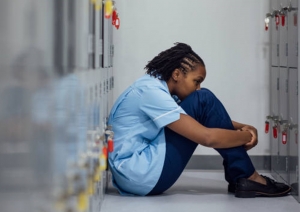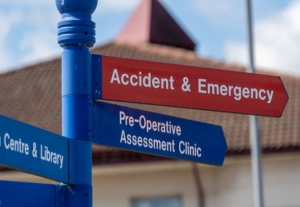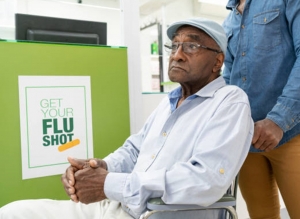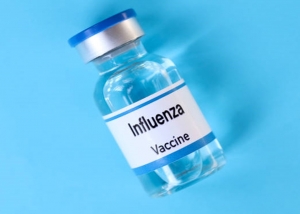Cleaner Cabins Essential for Safer Air Travel for People with Nut Allergies
Asking passengers to avoid eating nuts on flights may not prevent allergic reactions, but wiping down seats with a wet wipe could, according to allergy specialists reviewing recent findings. Small traces of food can often remain on seats, tray tables, and screens, potentially transferring to passengers’ hands and faces. However, evidence suggests that nut allergens are not spread through a plane’s ventilation system.
The UK Civil Aviation Authority requested an expert review on food allergy risks during flights. It found no evidence of nut particles circulating through cabin air, easing concerns that allergens could travel across the cabin. Unlike other environments, aircraft use efficient air filtering and circulation systems, replacing air every three to four minutes, far more frequently than in most buildings.
Instead, specialists suggest that the main risk for allergy sufferers comes from residual food particles left by previous passengers. Allowing passengers with food allergies to board early and wipe down their seating area with antibacterial wipes could reduce the risk of accidental exposure. Studies show low airborne levels of peanut particles close to the source, but physical residue on surfaces poses a more significant threat.
Charities like Allergy UK advocate for safe and inclusive air travel, encouraging airlines to make clear their food allergy policies and consider carrying emergency adrenaline supplies. Allergy experts recommend all individuals at risk carry two adrenaline pens and advise airlines to provide allergy-friendly information to ease passenger concerns.
England and Wales to Ban Single-Use Vapes from June 2025
Starting in June 2025, England and Wales will ban single-use disposable vapes to protect young people’s health and reduce environmental harm. Initially proposed in January, the ban aligns with commitments from Wales, with Scotland also adjusting its timeline to match. Authorities consider this measure essential, as disposable vapes - often sold in bright packaging - have driven a sharp increase in youth vaping. While vaping is less harmful than smoking, its long-term effects remain uncertain, and the single-use design has led to significant landfill waste.
The Department for Environment, Food and Rural Affairs (Defra) reported that vape use in England has surged over 400% between 2012 and 2023, with 9% of the population now using these devices. Many new users, particularly young adults, have adopted vaping without any prior smoking history. A Defra spokesperson highlighted the environmental impact, noting that five million disposable vapes were discarded each week last year, leading to hazardous waste in landfills and fires in waste-processing sites due to discarded batteries.
Concerns from the vaping industry include a potential rise in black market sales. The UK Vaping Industry Association has suggested a licensing scheme for sellers to curb underage sales, arguing that a ban could overwhelm enforcement efforts. Nonetheless, the government is moving forward with plans, working closely with devolved administrations to ensure a unified approach.
Retailers will have time to sell off existing stock, and online platforms will need to comply by removing banned products when the regulation takes effect. This measure aligns with the government's broader public health initiatives, which also includes a proposed ban on cigarette sales for anyone born after 2009, set to be introduced in parliament this winter.
NHS App to Offer Full Medical Records in Digital Health Overhaul
Medical records, test results, and doctors’ letters will soon be accessible via the NHS App under new plans for a digital overhaul in England’s health service. As part of a 10-year strategy, ministers aim to revolutionise patient interactions with the NHS, similar to how apps have transformed banking.
Currently, patient records are held locally by GPs and hospitals, and not all NHS services integrate with the app. However, the government is moving forward with creating a single patient record, allowing quicker access to care and reducing medical errors. Although some campaigners have raised data protection concerns, ministers are committed to safeguarding confidential health information.
A national conversation to shape the 10-year plan has been launched, focusing on the shift from "analogue to digital" care, with the public invited to contribute ideas. The plan also aims to move care into community-based neighbourhood health centres, offering a range of services under one roof.
Health Secretary Wes Streeting emphasised the importance of public input, stating, “The NHS is facing its worst crisis, but with your ideas, we can fix it.” Patients Association chief Rachel Power welcomed the initiative, saying it puts patients at the heart of NHS improvements. The government is expected to announce additional funding in the upcoming Budget to support these changes.
NHS Introduces Anonymous Reporting to Tackle Sexual Misconduct in Workplace
NHS staff will now be able to report incidents of sexual misconduct anonymously under a new national framework designed to create safer workplaces. The framework provides clear guidance on recognising, reporting, and addressing sexual misconduct, encouraging all staff to feel confident in coming forward.
Anonymous reporting will be introduced, and a range of resources, including trained allies and expert investigators, will be available to support those affected. This marks an important step in ensuring a safer and more supportive working environment for NHS employees.
In addition, health and care professionals can improve their ability to identify and respond to sexual assault and abuse by completing a dedicated e-learning programme. The training offers guidance on recognising the signs of abuse, safeguarding vulnerable groups, and providing non-judgemental support to those who disclose their experiences.
The programme also highlights the role of Sexual Assault Referral Centres (SARCs), which provide vital care and advice following an assault, whether or not the individual chooses to report the incident to the police.
Government Urged to Address NHS Crisis as Wait Times Rise
The government is facing mounting pressure to address the NHS crisis, as concerns grow over the lack of progress in reducing long waiting times for treatment. Latest figures for England show the hospital care backlog has risen slightly, with targets to reduce the longest waits likely to be missed. Performance in A&E and cancer care also remains below target, prompting calls for urgent action ahead of the winter months.
Experts have urged the government to use the upcoming 30th October Budget to show its commitment to the NHS. Ongoing discussions between the Department of Health and Social Care and the Treasury continue over funding for winter and the next financial year, with a 10-year NHS plan and long-term spending pledges expected in the spring.
However, health professionals argue the NHS cannot wait that long. The waiting list for hospital treatment stood at 7.64 million at the end of August, a slight decrease from last year’s peak but still higher than earlier this year. Prof Frank Smith of the Royal College of Surgeons of England warned that reducing long waits would be an "uphill battle" without investment in NHS infrastructure.
Health experts have emphasised the need for immediate support, with concerns that the upcoming winter could overwhelm the system. They stressed that while long-term reforms are necessary, action is urgently needed to prevent further strain on both patients and staff.
A Record Start for Lincolnshire's Autumn Covid and Flu Vaccination Campaign
Lincolnshire's autumn vaccination campaign has started with record-breaking numbers, according to local health authorities. Since the campaign launched on 3 October, over 15,000 people have received their Covid-19 booster jabs, while more than 25,000 have been vaccinated against flu.
GP surgeries and community pharmacies across the county have been praised for their efforts to encourage vaccinations. The NHS has noted that they have worked tirelessly to ensure as many people as possible are protected against both viruses this season.
Steve Clapton, from the NHS Lincolnshire Integrated Care Board, expressed surprise at how quickly people came forward for their vaccinations. He stated that while he expected a good response, the early uptake has exceeded all expectations, setting a new record for the region.
The current round of Covid boosters and flu vaccinations is available to those aged 65 and over, pregnant women, care home residents, and individuals aged six months to 64 years in a clinical risk group. Mr Clapton commended GP practices and the increased number of pharmacies involved, thanking them for their dedication to keeping the local community safe.
Health Officials Warn of Flu Risks as Vaccine Uptake Declines in the UK
Health officials are expressing concerns about potentially severe flu seasons in the UK due to a decline in vaccine uptake last year. The UK Health Security Agency (UKHSA) reported at least 18,000 flu-related deaths in England over the past few years, despite those seasons being relatively mild. The NHS offers free flu vaccinations annually to high-risk groups, but participation among some demographics has been disappointing. For instance, only one in three pregnant women received the vaccine last year, and uptake among individuals with long-term health conditions dropped to around 40%, compared to 50% the previous year.
Vaccination rates for two- and three-year-olds also remained low, with just over 40% receiving protection. Concerns about a potential "tripledemic" of flu, Covid, and respiratory syncytial virus (RSV) have been raised by NHS England. While flu can occur year-round, it is particularly prevalent in winter and can lead to serious health complications or even death. Historical data shows that some flu seasons can be especially deadly; for example, the 2017-2018 season saw 22,500 excess deaths.
The UK monitors flu activity in southern hemisphere countries like Australia to gauge potential trends for its own flu season. Reports indicate that Australia's flu cases have been relatively high this winter, which could signal a similar pattern for the UK. The flu vaccine is regularly updated to ensure it effectively targets circulating strains of the virus.
Dr Gayatri Amirthalingam, deputy director of immunisation at the UKHSA, stressed the importance of getting vaccinated as winter approaches. She highlighted that individuals who are pregnant or have long-term health conditions face a higher risk of serious illness from flu. She urged those eligible, including older adults and children, to get vaccinated promptly and to consult their healthcare providers if they have any concerns.
Northampton Initiative Supports Employment for Those with Mental Health Issues
Individuals who have faced challenges in securing employment due to mental health issues will soon receive valuable support aimed at facilitating their return to work. Workbridge, an initiative under the mental health charity St Andrew's Healthcare, has been granted £60,000 by West Northamptonshire Council, which is controlled by the Conservative party. This funding comes from the UK Shared Prosperity Fund and is part of a broader initiative designed to enhance local skills in Northampton.
The programme will focus on providing wellbeing support alongside essential skills training. Dr Inga Stewart, a consultant psychologist at St Andrew's, emphasised the collective responsibility to create supportive work environments that safeguard mental health. Statistics from Mental Health UK indicate that over 20% of employees took leave last year due to stress, highlighting the urgent need for effective workplace mental health strategies.
The five-week programme will empower participants to develop new skills, cultivate resilience, and boost their confidence, ultimately aiding their journey towards employment. Jenny Lane, Workbridge's education manager, expressed pride in assisting individuals living with mental illness, autism, learning disabilities, or brain injuries in acquiring vital vocational and life skills.
Referrals to the Workbridge vocational programme will be facilitated through the Department for Work and Pensions and Northampton's Wellbeing Launchpad, although self-referrals will also be accepted for those who meet the necessary criteria. This initiative represents a significant step forward in supporting mental health recovery and enhancing employability within the community.










